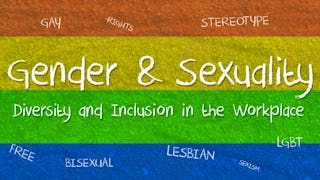Filter by
SubjectRequired
LanguageRequired
The language used throughout the course, in both instruction and assessments.
Learning ProductRequired
LevelRequired
DurationRequired
SkillsRequired
SubtitlesRequired
EducatorRequired
Explore the Womens Rights Course Catalog
 Status: Free
Status: FreeStanford University
Skills you'll gain: Community Development, Maternal Health, Child Health, Health Equity, Social Justice, Socioeconomics, Human Services, Advocacy, Education and Training, International Relations, Cultural Diversity, Law, Regulation, and Compliance, Geriatrics, Economics, Health Policy
 Status: Free
Status: FreeUniversity of California, Santa Cruz
Skills you'll gain: Social Justice, Advocacy, Community Organizing, Sociology, Social Sciences, Jury Trial, World History, Labor Law
 Status: Free
Status: FreeUniversiteit Leiden
Skills you'll gain: Legal Proceedings, International Relations, Conflict Management, Child Welfare, Ethical Standards And Conduct, Working With Children, Legal Research, Case Law, Investigation
 Status: Free
Status: FreeUniversity of Pittsburgh
Skills you'll gain: Diversity Awareness, Cultural Diversity, Diversity and Inclusion, Industrial and Organizational Psychology, Culture, Sociology, Social Studies, Social Sciences, Law, Regulation, and Compliance
 Status: Free
Status: FreeEmory University
Skills you'll gain: Maternal Health, Social Justice, Health Equity, Health Disparities, Epidemiology, Health Policy, Gynecology, Socioeconomics, Public Health, Policy Analysis, Research
 Status: Free
Status: FreeUniversity of Geneva
Skills you'll gain: Child Welfare, Pediatrics, Social Justice, Human Development, Disabilities, Health Disparities, Child Development, Working With Children, Social Sciences, Child Health, Law, Regulation, and Compliance, International Relations, Social Work, Cultural Diversity, Legal Proceedings, Anthropology, Family Law, Research
What brings you to Coursera today?
 Status: Free
Status: FreeNew York University
Skills you'll gain: Environmental Issue, Environmental Policy, Social Justice, Case Law, Environmental Laws, Advocacy, Legal Proceedings, Legal Strategy, Trend Analysis, Governance
 Status: Free
Status: FreeUtrecht University
Skills you'll gain: Social Justice, Court Systems, Political Sciences, Immigration Law, Law, Regulation, and Compliance, European History, Cultural Diversity, Social Sciences, Civil Law, Case Law, Media and Communications

University of Pennsylvania
Skills you'll gain: Intellectual Property, Legal Strategy, Brand Awareness, Brand Management, Asset Protection, Regulation and Legal Compliance, Packaging and Labeling, Business Strategy, Law, Regulation, and Compliance, Innovation, Business Valuation, Creativity, Legal Risk, Lawsuits, Musical Composition, Legal Research, Registration, Commercial Laws, Case Law, Economics
 Status: Free
Status: FreeUniversity of Alberta
Skills you'll gain: Art History, Social Studies, Storytelling, Cultural Diversity, Culture, Social Justice, Intercultural Competence, Socioeconomics, World History, Political Sciences, Social Sciences, Community Development, Land Management, Governance

University of Pennsylvania
Skills you'll gain: General Data Protection Regulation (GDPR), Law, Regulation, and Compliance, Information Privacy, Personally Identifiable Information, Regulatory Compliance, Data Security, Health Care Procedure and Regulation, Incident Response, Governance
 Status: Free
Status: FreeUniversiteit Leiden
Skills you'll gain: Arbitration, Court Systems, Mediation, Political Sciences, Legal Research, Legal Proceedings, Diplomacy, Case Law, Adjudication, Litigation and Civil Justice, International Relations, Civil Law
Womens Rights learners also search
In summary, here are 10 of our most popular womens rights courses
- International Women's Health and Human Rights: Stanford University
- Feminism and Social Justice: University of California, Santa Cruz
- International Humanitarian Law in Theory and Practice : Universiteit Leiden
- Gender and Sexuality: Diversity and Inclusion in the Workplace: University of Pittsburgh
- Public Health Approaches to Abortion: Emory University
- Children's Human Rights - An Interdisciplinary Introduction: University of Geneva
- Climate Change and Human Rights: New York University
- Human Rights for Open Societies: Utrecht University
- Intellectual Property Law: University of Pennsylvania
- Indigenous Canada: University of Alberta










